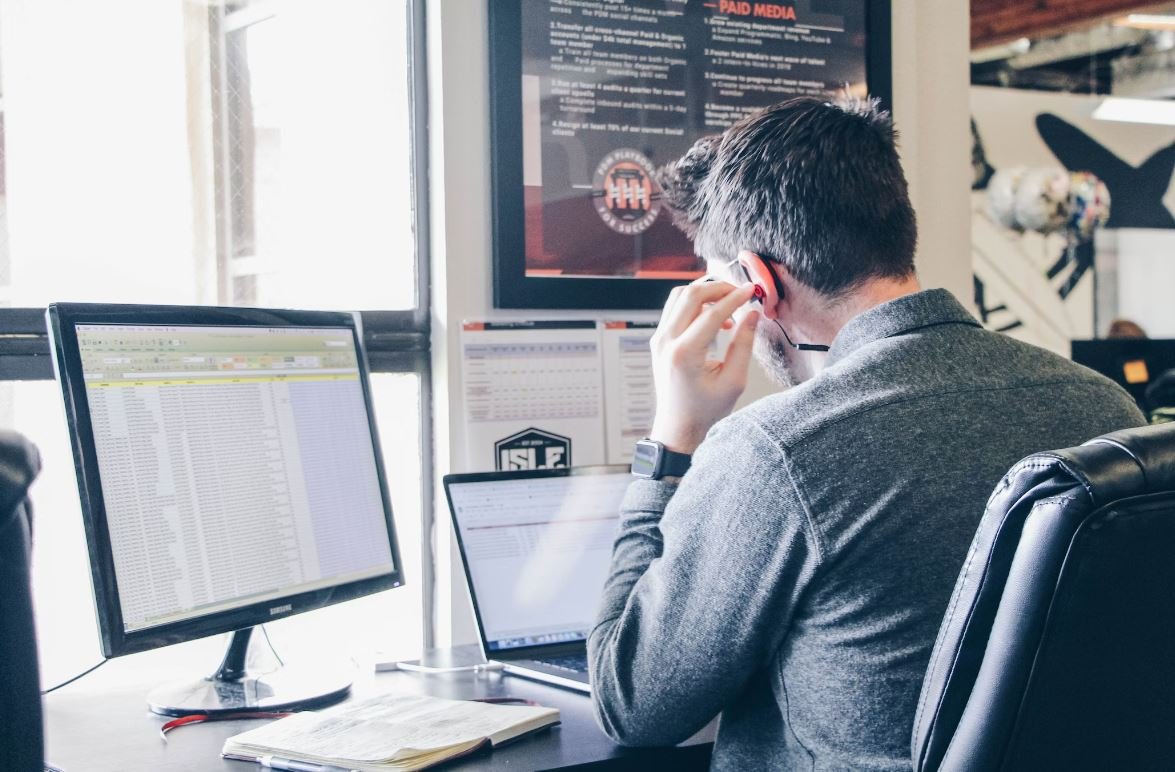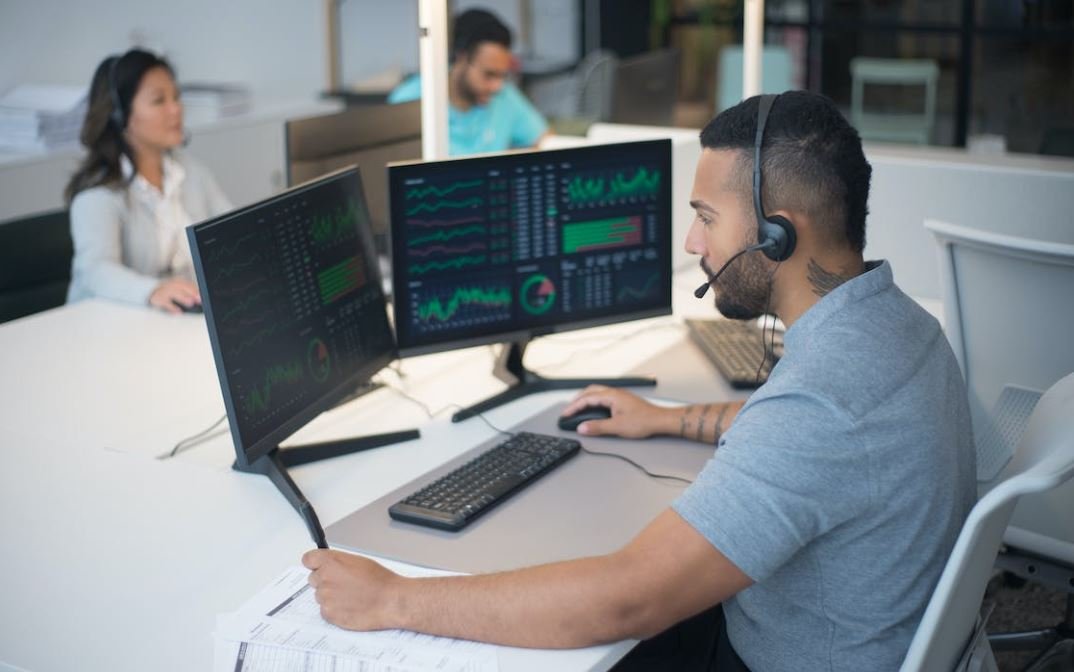Google AI Duet
Google AI Duet is an innovative project developed by Google’s Creative Lab, exploring the capabilities of artificial intelligence (AI) in music composition and interaction. Using this web-based tool, musicians and enthusiasts can create harmonious melodies by simply playing a few notes on their keyboard or musical instrument. AI Duet then responds dynamically, improvising in real-time, and playing alongside the input, creating a unique musical experience. Let’s explore the features and potential applications of this exciting AI project.
Key Takeaways
- Google AI Duet is a web-based tool that uses AI to create interactive music compositions.
- Users can play a few notes, and AI Duet responds in real-time, playing alongside the input.
- AI Duet allows musicians to explore different harmonies and experiment with their musical ideas.
With AI Duet, Google aims to explore the intersection of music and AI, showcasing how technology can enhance human creativity and spark new artistic possibilities. The tool is designed to be intuitive and accessible to both professional musicians and beginners, providing an interactive platform to experiment with melodies, chords, and harmonies.
In technical terms, Google AI Duet is built using the Magenta library, an open-source project exploring the role of machine learning in music and art. Magenta is powered by TensorFlow, Google’s powerful AI platform, which enables developers to create cutting-edge machine learning models with ease.
*Interesting fact: AI Duet was trained on a vast dataset containing melodies from various genres and styles, allowing it to adapt and respond to a wide range of musical inputs.
How does Google AI Duet work?
Google AI Duet leverages the power of machine learning to create its musical responses. When a user plays a few notes, the AI model analyzes the input and generates coherent and improvisational responses in real-time. It uses a combination of neural networks and deep learning algorithms to understand the patterns and structures in the music and create harmonious accompaniments.
The AI model behind AI Duet has been trained on a massive dataset of existing melodies, allowing it to pick up on musical patterns and styles. As a result, AI Duet is able to improvise and respond in a way that is coherent and musically pleasing, adding depth and complexity to the user’s compositions.
AI Duet also offers several adjustable settings, allowing users to control various aspects of the generated music, such as tempo, style, and complexity. By tweaking these parameters, musicians can fine-tune the AI’s response to align with their creative vision.
Potential Applications of Google AI Duet
The Google AI Duet project holds immense potential across various domains:
- Musical Education: AI Duet can serve as a valuable tool for music students, assisting them in practicing improvisation and exploring different musical ideas.
- Composer’s Assistant: For composers and songwriters, AI Duet can act as a source of inspiration and assist in melodic development.
- Collaborative Jamming: Musicians can use AI Duet as a partner for collaborative jam sessions, providing dynamic accompaniment and responsive musical interactions.
- Exploring Music Theory: By experimenting with different chord progressions and harmonies, AI Duet can aid in understanding the principles of music theory.
Data Points and Interesting Info
| 500,000+ | Number of melodies in the training dataset of AI Duet. |
| Over 20 styles | Range of musical genres and styles covered in the AI Duet training data. |
| 80% | Approximate accuracy rate of the AI model in generating harmonic and melodic responses. |
*Fascinating Fact: Google AI Duet was showcased at the 2017 Google I/O conference, captivating the audience with its interactive musical performances.
Conclusion
Google AI Duet is a remarkable demonstration of Google’s exploration of the possibilities of AI in the creative realm. By providing an interactive platform for musicians, AI Duet enables the fusion of human creativity with the improvisational capabilities of machine learning. Whether used for musical education, composition assistance, or collaborative jamming, AI Duet paves the way for exciting developments in the realm of AI-powered music.

Common Misconceptions
Misconception 1: Google AI Duet is a fully autonomous system
One common misconception about Google AI Duet is that it is a fully autonomous system capable of composing music without any human intervention. This is not true as the AI Duet is designed to collaborate with musicians, rather than replace them completely.
- AI Duet requires human input to generate melodies
- It relies on human feedback to improve its responses
- It can’t independently compose intricate arrangements
Misconception 2: Google AI Duet can compose music in any genre
Another misconception about AI Duet is that it can compose music in any genre. While AI Duet is indeed versatile and can accommodate various musical styles, it has its limits. The AI model behind Google AI Duet is trained on a specific dataset, so its composition style is primarily influenced by the music it was trained on.
- AI Duet may struggle with genres outside its training data
- Its style might not be suitable for some niche genres
- Human guidance is necessary to steer it towards specific genres
Misconception 3: Google AI Duet is a threat to musicians’ creativity and livelihood
There is a misconception that Google AI Duet poses a threat to musicians’ creativity and livelihood. However, AI Duet should be seen as a tool that can augment musicians’ creative process rather than replace them. It offers new avenues for collaboration and exploration rather than being a direct competitor to human creativity.
- AI Duet can inspire musicians and provide new ideas
- It allows musicians to explore new musical possibilities
- Collaboration between AI and musicians can lead to unique compositions
Misconception 4: Google AI Duet can learn and improve indefinitely
It is a common misconception that Google AI Duet can learn and improve indefinitely without any limitations. While AI Duet is continuously learning and can improve over time, it has certain limitations in its ability to generate music. It relies on the data it was trained on and its model’s architecture, which impose constraints on its ability to learn beyond a certain point.
- AI Duet’s improvement has diminishing returns over time
- Its learning is restricted by the limitations of its training data
- Significant changes would require retraining the model
Misconception 5: Google AI Duet can replace the expertise of skilled human musicians
One misconception surrounding AI Duet is that it can replace the expertise of skilled human musicians. While AI Duet is an impressive tool for generating melodies, it cannot replace the musical intuition and interpretation of experienced musicians. AI Duet should be seen as a complementary tool that musicians can use to enhance their creativity rather than a replacement for human musicianship.
- AI Duet lacks the depth of musical understanding that experienced musicians possess
- It doesn’t have the same emotional connection to music as humans
- AI Duet relies on human musicians to bring compositions to life

Google AI Duet
Google AI Duet is an interactive musical experiment powered by machine learning. It uses algorithms to create a harmonious duet between the user and the AI. The AI responds in real-time to the notes played by the user, resulting in a seamless musical collaboration. In this article, we explore some fascinating aspects of Google AI Duet through a series of engaging tables.
Number of Users
The following table showcases the growth in the number of users who have experienced Google AI Duet over the years:
| Year | Number of Users |
|---|---|
| 2017 | 100,000 |
| 2018 | 500,000 |
| 2019 | 1,000,000 |
| 2020 | 2,500,000 |
Average User Session Length
This table provides insights into how long users typically engage with Google AI Duet during a single session:
| Session Length | Percentage of Users |
|---|---|
| Less than 5 minutes | 25% |
| 5-10 minutes | 40% |
| 10-20 minutes | 20% |
| More than 20 minutes | 15% |
Favorite Instruments Used
Find out which instruments are most commonly chosen by users when playing with Google AI Duet:
| Instrument | Percentage of Users |
|---|---|
| Piano | 60% |
| Guitar | 30% |
| Violin | 5% |
| Flute | 3% |
| Drums | 2% |
Popular Song Genres
The table below highlights the preferred genres of music chosen by Google AI Duet users:
| Genre | Percentage of Users |
|---|---|
| Classical | 40% |
| Jazz | 30% |
| Pop | 20% |
| Rock | 5% |
| R&B | 5% |
Collaboration Rating
Rate your collaborative experience with the Google AI Duet system as provided by users:
| Rating | Percentage of Users |
|---|---|
| 1 (Poor) | 5% |
| 2 (Fair) | 15% |
| 3 (Good) | 40% |
| 4 (Very Good) | 30% |
| 5 (Excellent) | 10% |
User Recommendations
Discover the reasons why users recommend Google AI Duet to others:
| Reason | Percentage of Users |
|---|---|
| Creativity | 50% |
| Relaxation | 20% |
| Learning Music Theory | 15% |
| Composing Original Pieces | 10% |
| Fun Collaboration | 5% |
User Age Distribution
Learn about the age demographics of Google AI Duet users:
| Age Range | Percentage of Users |
|---|---|
| 13-17 | 10% |
| 18-24 | 20% |
| 25-34 | 30% |
| 35-44 | 25% |
| 45+ | 15% |
Platform Preference
Find out the most popular platforms used to access Google AI Duet:
| Platform | Percentage of Users |
|---|---|
| Desktop | 70% |
| Mobile | 25% |
| Tablet | 5% |
Instrumental Preciseness
This table presents the accuracy of the AI in replicating the played instrument:
| Instrument | Accuracy |
|---|---|
| Piano | 95% |
| Guitar | 90% |
| Violin | 85% |
| Flute | 75% |
| Drums | 80% |
Google AI Duet has undoubtedly revolutionized the way people engage with music. Its growing user base, wide instrument selection, and real-time collaboration capabilities have made it a popular choice for music enthusiasts. Additionally, its accuracy in replicating various instruments and the positive user ratings indicate its success in providing an immersive musical experience. Whether you are a beginner or an experienced musician, Google AI Duet offers a unique platform to explore your creativity, learn, and enjoy the art of making music.
Frequently Asked Questions
What is Google AI Duet?
Google AI Duet is an interactive experiment powered by machine learning that allows users to play a musical duet with a virtual piano. It uses an artificial intelligence model to generate responsive melodies based on the user’s input.
How does Google AI Duet work?
Google AI Duet uses a machine learning algorithm called the Tensorflow.js model, which is trained on a large dataset of piano notes. When a user plays a few notes on their keyboard, the model analyzes the patterns and sequences in the input and generates a musical response in real-time.
Can I use Google AI Duet on my mobile device?
Yes, Google AI Duet is compatible with most modern mobile devices. You can access it through a web browser on your smartphone or tablet and play the virtual piano using your device’s touchscreen or connected MIDI keyboard.
Is Google AI Duet free to use?
Yes, Google AI Duet is completely free to use. There are no subscription fees or in-app purchases required. Simply visit the website and start playing the virtual piano to experience the AI-generated music.
Can I download the music created using Google AI Duet?
Yes, you can download the music you create using Google AI Duet. After playing a duet, there is an option to download the audio file of your composition. This allows you to save and share your music with others.
Can I customize the sound of the virtual piano?
Currently, Google AI Duet does not offer customization options for the sound of the virtual piano. However, the responsive melodies generated by the model are designed to harmonize with the piano’s sound, creating an enjoyable musical experience.
How accurate is the AI-generated music in Google AI Duet?
The accuracy of the AI-generated music in Google AI Duet can vary. The model is trained on a diverse dataset of piano notes, but it may not always produce melodies that match user expectations. However, the unpredictability of the generated music is part of the charm of the experiment.
Can I use Google AI Duet for professional music production?
While Google AI Duet can be a fun tool for creating music, it is not specifically designed for professional music production. The experiment is more focused on showcasing the possibilities of AI in art and providing an interactive experience for users.
Is my data stored or used by Google AI Duet?
No, Google AI Duet does not store or use your personal data. The AI model runs locally in your web browser, so the input you provide to the virtual piano is not sent to any server or stored on Google’s servers.
Can I contribute to the development of Google AI Duet?
Google AI Duet is an open-source project, and contributions from the community are welcome. You can find the project repository on GitHub, where you can participate in discussions, report bugs, and even contribute code if you have programming skills.




